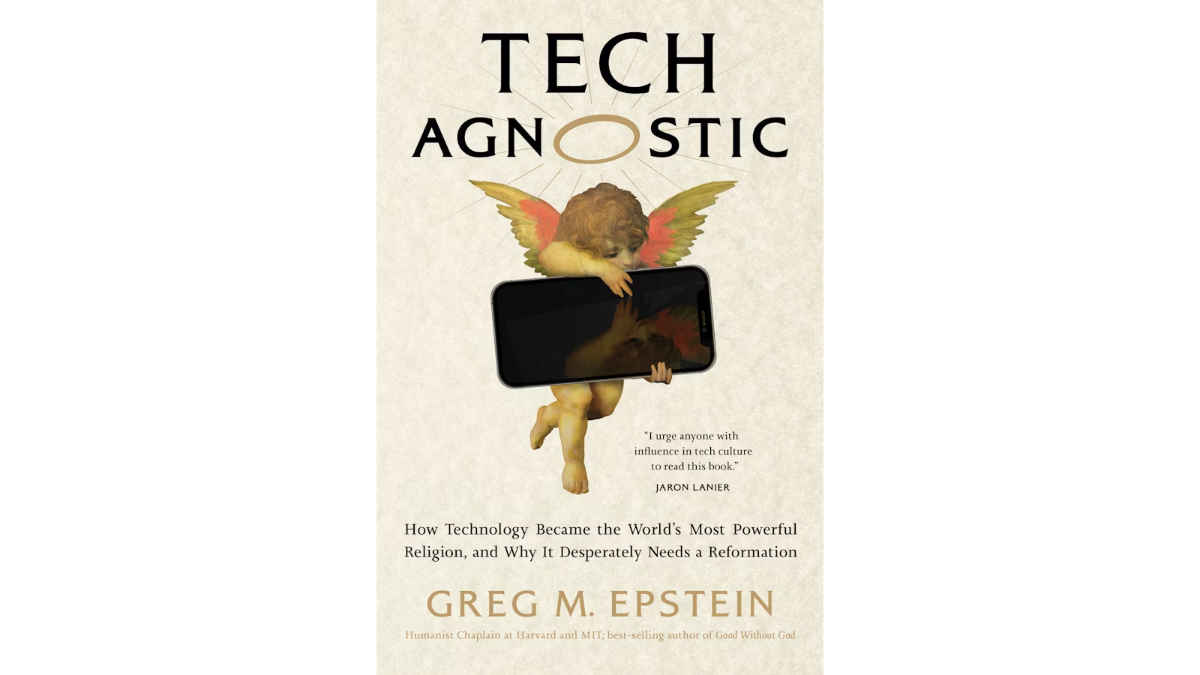Tech as Religion: Greg Epstein Explores the Need for a Technological Reformation

Date: November 10, 2024
Alayaran.com
In an era where technology permeates every aspect of our daily lives, Harvard and MIT Humanist Chaplain Greg Epstein has taken a novel perspective on the tech world, likening it to a modern-day religion in his latest book, "Tech Agnostic: How Technology Became the World's Most Powerful Religion, and Why It Desperately Needs a Reformation." Released by MIT Press, Epstein's book delves into how Silicon Valley's leaders are not just innovators but also prophets promising salvation through technology.
Epstein, in a recent discussion with Justin Hendrix of Tech Policy Press, outlined his thesis that technology has transcended its role as mere tools or industries to become a dominant cultural force, akin to a religion. "Technology has eaten capitalism," Epstein stated, emphasizing how tech has become the primary medium through which economic activities are conducted, thus reshaping societal values and interactions.
The book, which has garnered attention and acclaim from various media outlets including The Guardian and The Boston Globe, explores the religious-like fervor around tech innovations, from the promises of abundance by figures like Sam Altman to the dire warnings of technological apocalypse from AI researchers like Geoffrey Hinton. Epstein argues that this tech-centric worldview requires a reformation to mitigate its excesses and to realign it with humanist principles.
Promises of Abundance and the Shadow of Apocalypse
Epstein discusses how tech moguls like Altman speak of abundance as a "birthright," a term echoing religious promises of prosperity. However, he critiques the unequal distribution of this promised abundance, pointing out that the real beneficiaries often seem to be the tech leaders themselves. On the other side of the spectrum, the narrative of tech apocalypse, where AI could potentially lead to humanity's downfall, serves as a modern-day sermon on damnation, motivating followers to support stringent controls or the visions of tech leaders who claim they can prevent such disasters.
A Call for Reformation
The core of Epstein's argument lies in the need for a technological reformation. He calls for recognizing tech hierarchies as products of religious ideology and critiques them accordingly. Epstein advocates for a flattening of these hierarchies to distribute power more evenly, acknowledging the importance of tech rituals in our lives, and honoring those who question and challenge the tech status quo—whom he refers to as "apostates, heretics, and Cassandras."
Epstein's work is not an outright rejection of technology but a plea for balance and ethical consideration. He encourages a tech culture shaped by humanists and spiritual practitioners who can offer an alternative vision, one where technology serves human needs without dictating human values.
Inspiration for Change
In the wake of recent political upheavals and the ongoing integration of technology into every facet of life, Epstein's book serves as both a critique and a beacon of hope. He draws inspiration from individuals like Chris Gilliard, a privacy researcher and tech critic, who illustrate the real-world implications of tech overreach. Epstein's narrative is filled with stories of resilience and resistance against the more oppressive aspects of tech culture, offering a roadmap for those seeking to navigate or reform the tech landscape.
Conclusion
"Tech Agnostic" invites readers to reconsider their relationship with technology, not as passive users but as active participants in shaping a future where technology enhances rather than dominates human life. Epstein's work is a timely call for reflection, reform, and renewal in our increasingly tech-driven world, urging us to think critically about the deities we choose to worship in the digital age.
